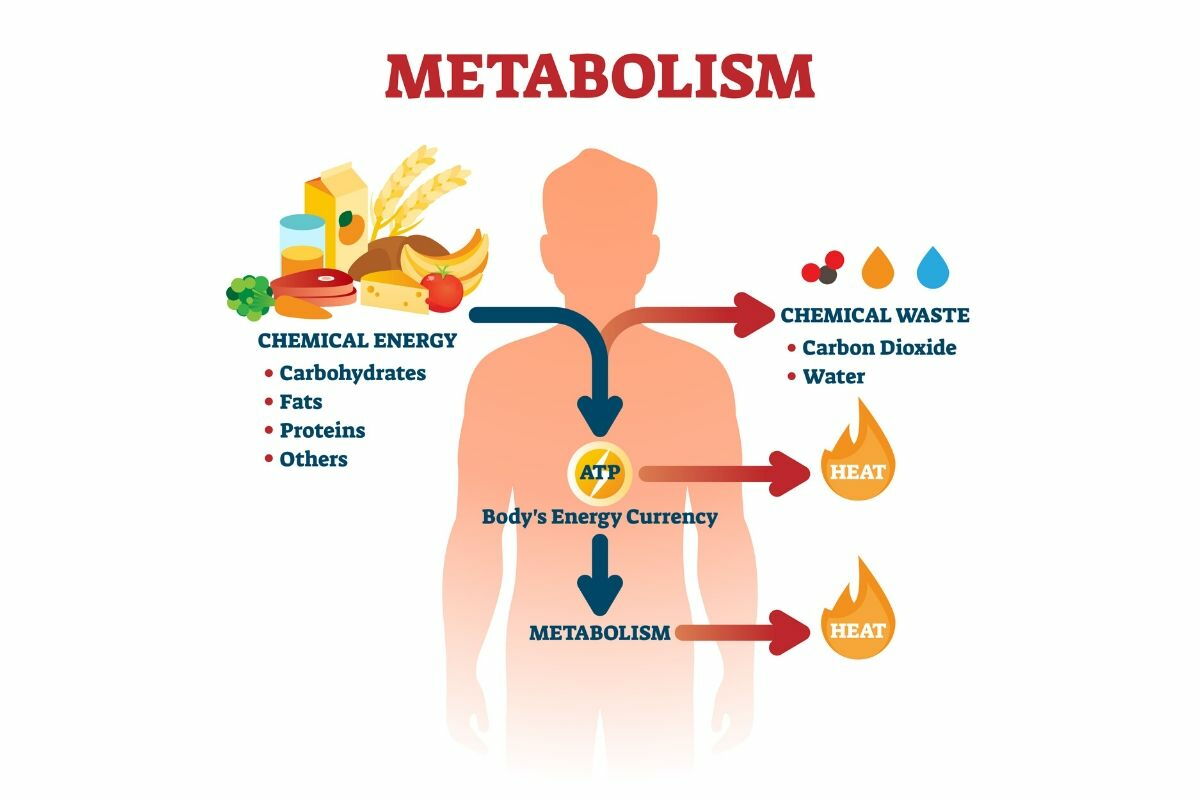Everyone would like to have a fast metabolism when it comes to losing body fat.
The ability to lose weight is closely linked to the basal metabolic rate, which depends on the amount of muscle a person has, as well as on hormonal levels and individual insulin sensitivity. In this article, we see in detail what are the strategies that we can implement to accelerate the metabolism and, therefore, dispose of more calories and fat.
9 Ways to Accelerate Metabolism

1. Cardio in the morning on an empty stomach
Cardio done on an empty stomach in the morning is great for boosting your metabolism early in the day. I usually advise my clients - both in periods of lean mass gain and when they need to lose excess fat - to perform a LISS or HIIT cardiovascular activity first thing in the morning to stimulate the metabolism up to 6/8 hours later.
2. Catecholamines
Stimulants such as caffeine and thermogenic that act on the sympathetic-mimetic system can burn more calories in the same amount of time, increasing heart rate and helping to extract triglycerides from adipocytes for use as energy.
3. Carnitine
Once the triglycerides have been extracted from the adipocytes, they must be transported by L-carnitine to beta-oxidation, to be transformed into energy that can be spent by the body. Without enough L-carnitine, long-chain fatty acids will fail to have complete and effective oxidation. This is why carnitine is a key element for optimal metabolism.
4. Carbohydrates
The active thyroid hormone is the triiodothyronine hormone (T3). This hormone dictates the pace of metabolism and all transformations in the body. The T3 hormone is mainly produced by the conversion of the T4 thyroxine hormone into T3. For this conversion to take place in the liver, the presence of hepatic glycogen is required. This tells us that to have a good conversion of T4 to T3 it is necessary to eat carbohydrates. This is why even in ketogenic diets it is necessary to make small carbohydrate refills to restore liver glycogen, to ensure efficient conversion of thyroid hormone.
5. Sleep
For a person's metabolism to be 100% effective, it is necessary to sleep long (the ideal is at least 7-8 hours) and deeply. It has been seen that in subjects who have sleep problems, fat loss is sabotaged to varying degrees thanks to the excessive production of cortisol, a common situation when one sleeps little. Supplements that induce restful sleep have gradually grown in importance, occupying a major role among weight loss supplements.

6. Insulin sensitivity
Another important element to consider in speeding up metabolism is insulin sensitivity.
By "insulin sensitivity" we intend to keep insulin production to a minimum with a given carbohydrate administration. This process is one of the keystones of increasing muscle mass and reducing fat mass. Insulin sensitivity can be increased through dietary strategies such as "carb cycling" or with the use of GDA (Glucose Disposal Agentes). Among the best known GDAs, we mention berberine, chromium picolinate, and Gymnema Sylvestre.
7. Weight training
Weight training is an element that has the greatest potential to effectively increase metabolism. Building lean muscle mass gives us the certainty of an increase in basal metabolism and the ability to burn more calories at rest. Furthermore, muscle mass acts on other factors such as insulin sensitivity and heat dissipation due to thermogenesis, ie the ability to burn calories to produce heat and not energy (the so-called "metabolic advantage").
8. Eat protein at regular intervals ("protein pacing")
Proteins have a very complex structure. To use the amino acids that compose them, our body has to spend a considerable amount of energy! Proteins have 4 kcal per gram, like carbohydrates, but have a mainly plastic function, of "construction", and only secondarily energetic (gluconeogenesis). They, therefore, put the metabolism in a condition of greater calorie expenditure, which is why taking protein at regular intervals, several times a day (protein pacing) will trigger the metabolism to work harder.
9. DO NOT over train
Overtraining syndrome is one of the conditions to be avoided absolutely to maintain an optimal metabolism. Giving training stimuli that are too intense, too long, and too frequently could end up slowing down the metabolism, because the body exceeds its recovery capacity. This syndrome is capable of stopping improvements in terms of an increase in lean mass and fat loss but, above all, it risks sabotaging normal metabolism, causing problems with the immune system and the sleep-wake rhythm.
Conclusions
We have briefly seen the main strategies that we can implement to stimulate our metabolism but, as with everything, we must always be careful not to exceed and always rely on professionals able to create nutrition and training programs to hoc for our specific case.
References
- New research developments and insights from Metabolism, Olivia M. Farr, Michelle Camp, and Christos S. Mantzoros, Metabolism. Author manuscript; available in PMC 2016 Mar 1.
Published in final edited form as: Metabolism. 2015 Mar; 64(3): 354–367. Published online 2014 Dec 17. doi: 10.1016/j.metabol.2014.12.002 - The truth about metabolism: Is a sluggish metabolism to blame for your weight gain? ,Harvard Men's Health Watch online
- How can I speed up my metabolism?, NHS online
- Can you boost your metabolism?, Emily Wax, RD, The Brooklyn Hospital Center, Brooklyn, NY. Also reviewed by David Zieve, MD, MHA, Medical Director, Brenda Conaway, Editorial Director, and the A.D.A.M. Editorial team, Medline Plus online
